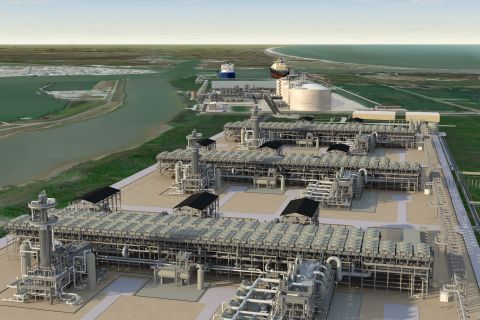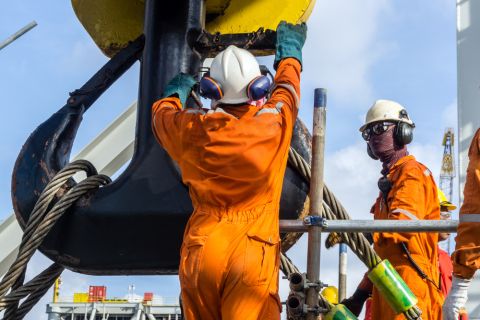The 29th annual Howard Weil Energy Conference in New Orleans opened with a local gospel group singing "Oh Happy Day," and indeed, the mood was upbeat for the 330 institutional investors and portfolio managers attending. "I have been in the securities business for 30 years and I have been an unabashed bull only five times, and right now is three of those times," said Howard Weil president William H. Walker. "Several people called us, masquerading as Howard Weil salesmen, trying to arrange one-on-ones with our presenting companies. I guess honey does draw flies." The conference had more presentations this year by major oil companies such as Chevron Corp. , Phillips Petroleum Co. and Murphy Oil Corp. There also was a half-day devoted to publicly traded companies involved in alternative technologies such as fuel-cell and gas-to-liquids systems, and independent power production. But high natural gas prices, supply shortages, possible crude oil shortages later this year and the California power crisis dominated E&P company presentations and investor gossip. It all was a reminder that gas production fundamentals are the best they have been in many years. Several attendees noted that liquefied natural gas (LNG) is back in the news, a sign that gas prices will remain strong in the future, at least above $3 per thousand cubic feet. "Industry fundamentals never looked more positive as far as the number of opportunities we see now," said El Paso Corp. chairman Bill Wise. The Houston-based diversified energy supplier is prepared to build five new LNG terminals in the U.S. and Mexico. The Houston gas giant lost money in LNG in the 1970s. Since then there has been a 30% drop in shipbuilding costs and liquefaction technology, such that the economics of LNG work at about $3, Wise said. "We are the largest holder of 'uncontracted-for' receiving terminals on the East Coast. We expect this business to contribute $400 million in earnings by 2003." El Paso owns 6.5 trillion cubic feet equivalent of reserves, 90% of which is gas. It has hedged 75% of its 2001 production and 50% of its 2002 output. Following its acquisitions of Sonat Inc. and Coastal Corp. , El Paso now is the nation's third largest gas producer. Like many other speakers at the conference, Wise noted that despite greatly increased gas drilling in the United States and Canada, "we are not seeing an adequate production response. We have a significant challenge in meeting projected demand growth-we are treading water."
Recommended Reading
Segrist: The LNG Pause and a Big, Dumb Question
2024-04-25 - In trying to understand the White House’s decision to pause LNG export permits and wondering if it’s just a red herring, one big, dumb question must be asked.
Texas LNG Export Plant Signs Additional Offtake Deal With EQT
2024-04-23 - Glenfarne Group LLC's proposed Texas LNG export plant in Brownsville has signed an additional tolling agreement with EQT Corp. to provide natural gas liquefaction services of an additional 1.5 mtpa over 20 years.
US Refiners to Face Tighter Heavy Spreads this Summer TPH
2024-04-22 - Tudor, Pickering, Holt and Co. (TPH) expects fairly tight heavy crude discounts in the U.S. this summer and beyond owing to lower imports of Canadian, Mexican and Venezuelan crudes.
What's Affecting Oil Prices This Week? (April 22, 2024)
2024-04-22 - Stratas Advisors predict that despite geopolitical tensions, the oil supply will not be disrupted, even with the U.S. House of Representatives inserting sanctions on Iran’s oil exports.
Association: Monthly Texas Upstream Jobs Show Most Growth in Decade
2024-04-22 - Since the COVID-19 pandemic, the oil and gas industry has added 39,500 upstream jobs in Texas, with take home pay averaging $124,000 in 2023.




